Chinese Lantern Festival 2024
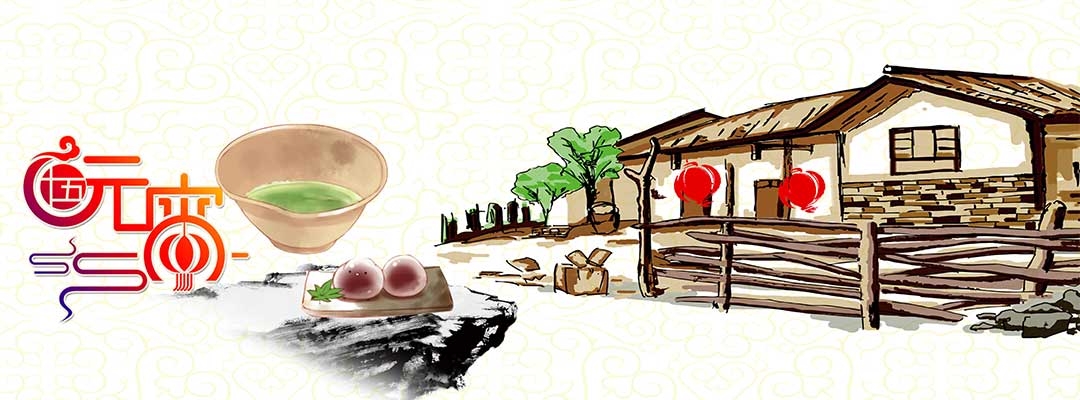
The 15th day of the first month on the lunar calendar, the first night of the year’s full moon, has long been celebrated as the Lantern Festival. It is the first vital carnival after Chinese New Year, and is also called Yuanxiao Festival (元宵节 yuán xiāo jiē), Shangyuan Jie (上元节 shàng yuán jié). Customs vary widely across China, among them the eating of glutinous rice balls (Tangyuan or Yuanxiao), the admiring of flower lanterns, and dragon and lion dances which are the essentials during the festival.
Content Preview
The Lantern Festival dates over next few years:
| Year | Date | Weekday |
|---|---|---|
| 2024 | February 24 | Saturday |
| 2025 | February 12 | Wednesday |
| 2026 | March 3 | Tuesday |
| 2027 | February 20 | Saturday |
| 2028 | February 9 | Wednesday |
| 2029 | February 27 | Tuesday |
| 2030 | February 17 | Sunday |
Origin and Development of Chinese Lantern Festival

The Chinese Lantern Festival, traced back to the Western Han (202BC-AD8), was originally a traditional festival from the Han ethnic group. Admiring flower lanterns derived from the Eastern Han Dynasty (AD25-220). Emperor Ming (Liu Zhuang) gave orders to light lanterns in the imperial palace and temples to show respect to Buddha on the 15th day of the first lunar month, as he was a Buddhist. Gradually, people in all classes decked out their homes with lanterns, and this Buddhist etiquette has also become a part of the customs in the festival. In the Sui Dynasty (AD581-618), the Lantern Festival was held on large scale as ordered by Emperor Yang (Yang Guang). A four-kilometer stage was set up along the street from the gate of the palace to celebrate the festival. There were more than 20 thousand performers and 18 thousand music players; the street was bustling with a crowd of the audience throughout the night.
During the Tang Dynasty (AD618-907), the country had become very powerful; admiring lanterns became a popular activity. Even the curfew imposed throughout the country was lifted during the 14th to the 16th day of the first lunar month, so it was easier to hold celebration events. More than 50 thousand crafted lanterns in various shapes were lit up on both sides of the street, with brilliant performances of song, dance, and acrobatic feats. The whole city was illuminated by the display of fireworks and the sea of lanterns.
During the Song Dynasty (AD960-1279), along with the carnival every year, officers also sent red envelopes, all of the dignitaries and ordinary people enjoyed the night of the festival. Some people created lanterns with a horror theme; the judiciary at that time made laws universally understood through the picture stories on the lanterns and by implementing displays of punishment. The festival developed into the liveliest carnival lasting five days. A drink was prepared for every participant, as the imperial court encouraged people to take part in the festivities. As well as this, the upsurge of guessing lantern riddles, the riddles pasted on the colorful lanterns, people would win a gift if they guessed the right answer.
During the Yuan Dynasty (AD1271-1368), most of the traditional festivals were canceled because the ruler was Mongolian, not Han. The Lantern Festival hence became not so important.
However, the festival during the Ming Dynasty (AD1368-1644) was extended to 10 days, which was the longest Lantern Festival in history.
The festival was not held in the palace in the Qing Dynasty (AD1644-1912), but in the folklore, it was still impressive, as every household hung a colorful lantern on the door.
The Legend of the Chinese Lantern Festival
In ancient times, people’s lives were threatened by ferocious beasts, and they killed wild animals in order to protect themselves. One day, a celestial crane came into the mortal world, and it was killed by mistake. The Jade Emperor was furiously angry about its death. He immediately ordered a troop to incinerate all humans and animals on the 15th day of the first lunar month. But one of his daughters didn’t want the innocent to suffer for it, so she came to the mortal world in secret and warned people. As a result, every family set firecrackers and fireworks and hung red lanterns outside for three days. In this way, people tricked the Jade Emperor and avoided a terrible disaster.
Although the legend is extremely dramatic, it can be certain that the origin of the festival relates to the way of celebration. The festival is celebrated at nighttime; therefore, fire plays a critical role. Until Buddhism was introduced in China, the Lantern Festival had more significance.
How Do Chinese Celebrate Lantern Festival
Today’s Lantern Festival is a perfect combination of tradition and modernity. It is time to eat Tangyuan, admire lanterns, guess lantern riddles and watch art performances. Lantern festival in many cities attracts a great number of visitors. Some people happily walk around with a bright small lantern in hand, making the atmosphere especially festive.

Eating Tangyuan or Yuanxiao: a symbol of reunion and harmony
Tangyuan and Yuanxiao are both soft glutinous rice balls. Tangyuan is very popular in southern China, but in Northern China people like to eat Yuanxiao. These are typical foods symbolizing family reunion and happiness. Read more about the difference between Tangyuan and Yuanxiao.
Admiring Flower Lantern
Delicately crafted lanterns are set up along the street, various shaped lanterns are painted with calligraphy, landscapes, flowers, and birds. The dazzling lantern display is a magnet for countless visitors.
Guessing Lantern Riddles: An Ancient Puzzle Game
Guessing lantern riddles stems from the Song Dynasty, and are also known as “tiger lanterns”, because guessing the right answer is as difficult as killing a tiger. Riddles have different forms, such as puzzles which are word tricks, and puzzles requiring a knowledge of history and classical literature. It is an attractive activity to keep people’s brains ticking over and to keep the festive mood.

Land Boat Dance
The Land boat dance is one of the folk art performances, which imitates sailing boats on the water. The boats are decorated with red silk and colorful lanterns. Normally, one dancer raises a decorated boat around their waist, but sometimes there are four to seven dancers in a big, long boat.
Dragon Dance
The Dragon is the incarnation of luck and prosperity. The Dragon dance is one of the activities with the national characteristics of China, which developed from the dragon totem, the dance with dragon lanterns and the enjoyment of the lantern displays. Vivid dragon lanterns are made of thin bamboo or iron strips, silk, and lamps. Performers show deft and rhythmic movements with fast trotting. The Dragon dance is usually performed on significant traditional festivals. It is an outstanding mark of Chinese culture.
Helpful Chinese Vocabulary for Chinese Lantern Festival
| Simplified Chinese | Traditional Chinese | Pinyin | English |
|---|---|---|---|
| 元宵节 | 元宵節 | yuán xiāo jiē | Lantern Festival |
| 上元节 | 上元節 | shàng yuán jiē | Shangyuan Festival |
| 吃汤圆 | 吃湯圓 | chī tāng yuán | Eating Tangyuan |
| 吃元宵 | 吃元宵 | chī yuán xiāo | Eating Yuanxiao |
| 灯笼 | 燈籠 | dēng lóng | Lantern |
| 猜灯谜 | 猜燈謎 | cāi dēng mí | Guessing lantern riddles |
| 团圆 | 團圓 | tuán yuán | Reunion |
Popular Lantern Festival Greetings
元宵节快乐!yuán xiāo jiē kuài lè
- Happy Lantern Festival!
元宵佳节到,祝你生活如汤圆般圆满,如灯笼般明亮!yuán xiāo jiā jiē dào ,zhù nǐ shēng huó rú tāng yuán bān yuán mǎn ,rú dēng lóng bān míng liàng
- May your life be as fulfilling as tangyuan, and as bright as lanterns.
甜甜蜜蜜吃汤圆,事事如意好事连;祝您元宵合家幸福美满!tián tián mì mì chī tāng yuán ,shì shì rú yì hǎo shì lián ;zhù nín yuán xiāo hé jiā xìng fú měi mǎn
- Enjoy sweet tangyuan and may everything go well for you. Wishing you and your family a happy and fulfilling Lantern Festival!
元宵佳节,祝你生活甜蜜,事业顺利! yuán xiāo jiā jiē ,zhù nǐ shēng huó tián mì ,shì yè shùn lì
- On this Lantern Festival, I wish you a sweet and successful life, both personally and professionally.
花鼓龙灯闹元宵,祝您事业有成,财源滚滚! huā gǔ lóng dēng nào yuán xiāo ,zhù nín shì yè yǒu chéng ,cái yuán gǔn gǔn
- Amidst the flower drums and dragon lanterns of Lantern Festival, I wish you success in your career and abundant wealth.
OR
Are you eager to begin your Chinese cultural journey?
Drop us a line and we will promptly connect you with our leading China expert!
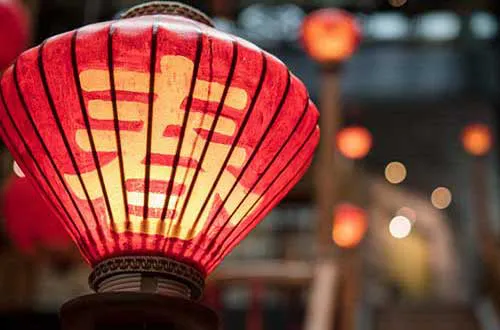 Chinese New Year
Chinese New Year 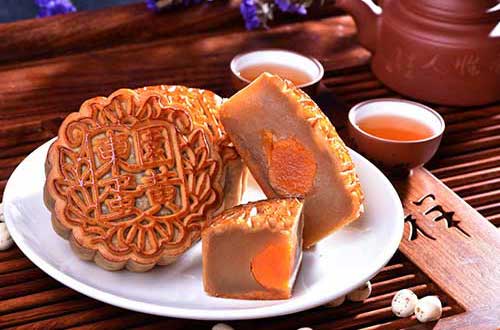 Mid-Autumn Festival
Mid-Autumn Festival 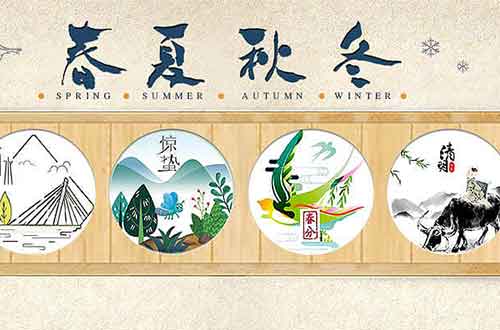 The 24 Solar Terms
The 24 Solar Terms 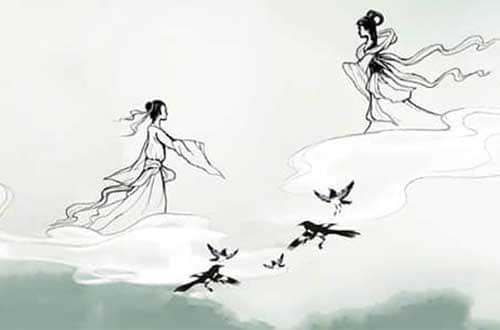 Duble Seventh Festival
Duble Seventh Festival